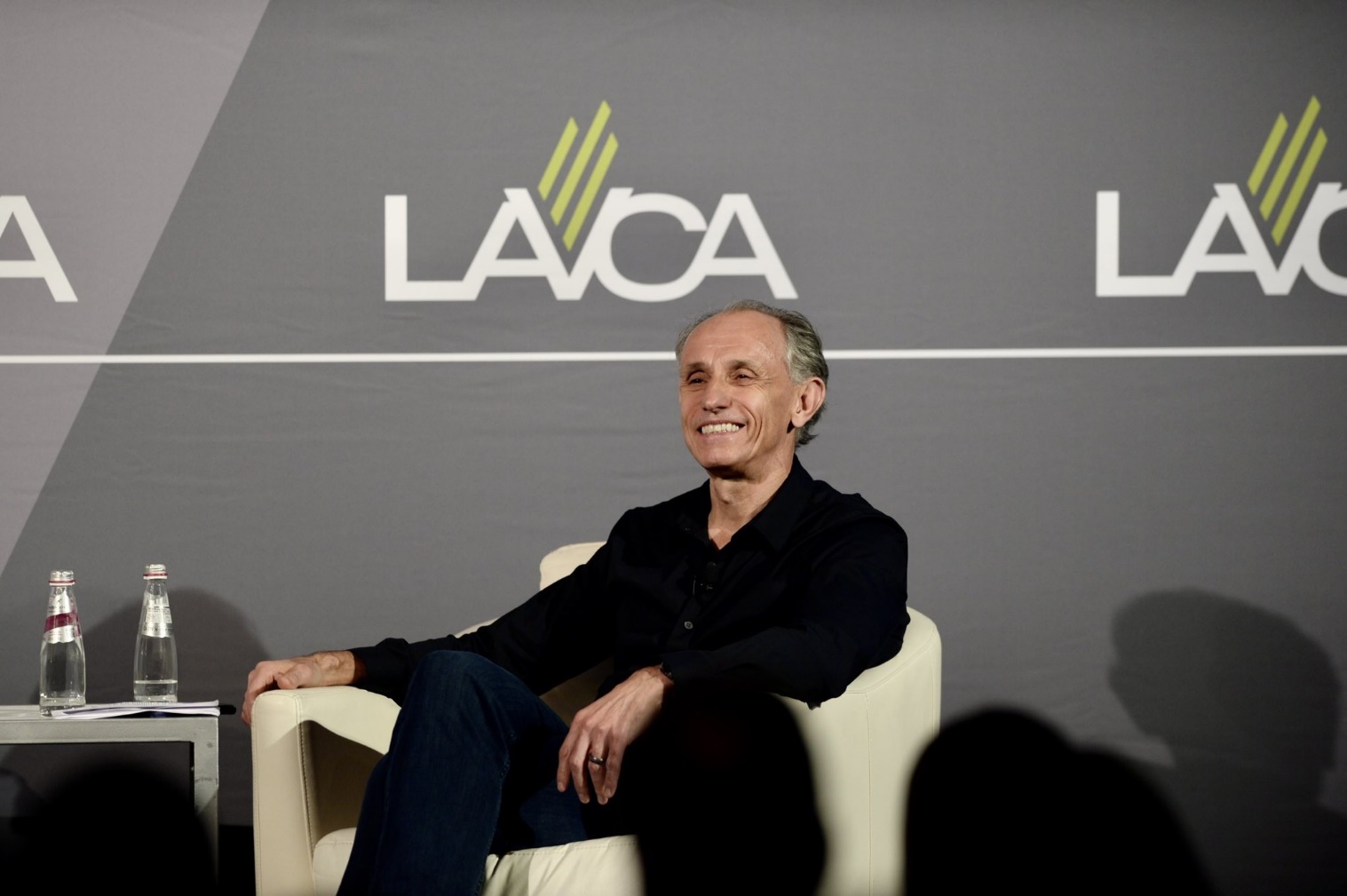How Nigel Morris’s Entrepreneurial Mentality Shapes a Venture Capital Empire in Fintech
In the years leading up to 2007, the financial technology (fintech) industry was experiencing significant growth and disruption. The widespread adoption of the internet and mobile technology had made it possible for fintech startups to offer financial products and services that were faster, more convenient, and more affordable than traditional financial institutions.
Many of these fintech startups were able to identify inefficiencies in the financial system and create innovative solutions that addressed them. For example, online lending platforms deployed technology to streamline the loan application process and offer lower interest rates to borrowers, while digital payment providers made it easier for consumers to make transactions and manage their finances.
Recognizing the huge potential of the booming fintech scene, Nigel Morris, the co-founder of Capital One, founded QED Investors in 2007. QED Investors was established with the aim of identifying and investing in promising early-stage fintech startups that were leveraging technology to disrupt traditional financial services and create new value for consumers. Keep reading to learn more about how QED Investors is re-shaping its future.
From Capital One to QED Investors: Nigel Morris’s Fascinating Journey in Finance and Fintech
Before jumping into the success “tale” of legendary QED Investors, let’s cast a glimpse over Nigel Morris – the big brain behind.
Speaking of the journey to build his capital over the years, he shared some insights in an interview with Forbes, “I’ve always had this view that what we do is make it easier for people to access credit and manage their finances. And if we do that, we’re doing a really good thing for society. And if we’re good at it, we’ll make some money. That’s been my approach from day one. That’s what we did at Capital One, and that’s what we’re doing now with QED Investors.”
Morris started his career at Signet Bank, where he worked in various roles before joining the credit card division of Signet Bank in the 1980s. It was there that he met Richard Fairbank, and together they went on to found Capital One in 1994.
He played a critical role in building Capital One’s marketing and customer acquisition strategies, which helped the company become one of the largest credit card issuers in the United States.
After leading Capital One for nearly two decades, the founder was ready for a new challenge and eager to leverage his experience and expertise to help other entrepreneurs succeed. He recognized the potential of fintech startups to transform the financial services sphere and saw an opportunity to help these companies flourish by providing both financial and strategic support.
This led him to found QED Investors, which has since become a major player in the fintech investment landscape. Morris’s experience and expertise have been invaluable in helping QED Investors identify promising startups and build strong relationships with their founders and management teams.
In an interview with TechCrunch, Morris explained: ” At QED Investors, we invest in companies that are using technology to transform financial services, whether that’s through online lending, digital payments, or new ways of underwriting risk. I’m excited about the potential of these companies to change the way that people think about financial services and to make a real difference in people’s lives.”
He also emphasized the importance of building strong relationships with the entrepreneurs and management teams of the companies that the early-stage investor invests in. He stated that “finding good people is key” to the firm’s success and that “we want to work with entrepreneurs who are passionate about their businesses and are willing to listen and learn from others.”
Inclusive Mentality to Define Hidden Gems in Fintech Scene
Based on publicly available information, Morris’s net worth has been estimated to be around $400 million as of 2021. This estimate reflects Morris’s success as a business leader and investor, as well as his role in building QED Investors into a top venture capital firm.
Morris’s leadership and vision have been instrumental in guiding QED Investors’ investment strategy and building a diverse and high-performing portfolio of over 150 companies in the fintech and education sectors.
Some notable companies in their portfolio in the fintech sector include Credit Karma, a credit monitoring and financial management platform, SoFi, a digital personal finance company, and Nubank, a Brazilian neo-bank. These companies have disrupted conventional banking models, raising the bar with innovative solutions for financial services.

In May 2021, Nigel Morris spoke at the LendIt Fintech USA conference, which is a leading fintech conference in the United States. During his keynote speech, the founder discussed the future of fintech and the importance of supporting underrepresented entrepreneurs, particularly women and people of color. He also talked about the role of venture capital in shaping the fintech landscape and highlighted QED Investors’ focus on supporting early-stage startups with innovative business models.
The speech was widely covered by media outlets, including FinLedger, which published an article summarizing Morris’s key points. The article quoted Morris as saying, “We think there’s a lot of opportunity in fintech to serve the underbanked, the underserved, those who are outside of the formal banking system.”
That being said, Morris and the early-stage investor’s approach appears to prioritize substance over style, focusing on building meaningful relationships with entrepreneurs and investors to support their portfolio companies and help them succeed.
In addition to his investment activities, Morris has been a vocal advocate for diversity and inclusion in the startup ecosystem. He has spoken publicly about the need to increase access to capital for underrepresented founders, and he has supported initiatives aimed at addressing this issue. For example, he is a member of the board of directors of the Center for Minority-Owned Business Enterprise (CMOBE), which is dedicated to supporting minority-owned businesses through education, training, and access to capital.
Morris has also been involved in efforts to promote diversity and inclusion within QED’s portfolio companies. In 2017, QED launched a program called “QED Access” to provide underrepresented founders with networking opportunities, mentorship, and access to capital. The program has been successful in helping diverse entrepreneurs to connect with investors and grow their businesses.
Nigel Morris’s accomplishments in the world of finance and fintech have not gone unnoticed. In 2009, he was recognized as the Angel Investor of the Year by the Washington Business Journal, further solidifying his reputation as a successful and influential investor.
“Economic Moat”: Supporting Portfolio Companies for Long-Term Growth
Nigel Morris has been influenced by the investment philosophy of Warren Buffett, one of the most successful investors in history.
The investment philosophy of Warren Buffett is based on the principle of value investing, which involves identifying companies that are undervalued by the market and have a sustainable competitive advantage, or “economic moat.”
As Morris has stated, “I’m an admirer of Warren Buffett’s approach to investing, which is focused on buying high-quality companies with a sustainable competitive advantage and holding onto them for the long term.”
“At QED Investors, we’re focused on identifying high-quality fintech companies with a sustainable competitive advantage, just as Warren Buffett looks for high-quality companies with a strong economic moat.”
In today’s fast-paced and rapidly evolving economy, companies that are able to innovate and stay ahead of the curve are often the ones that are most successful. This can involve developing new products and services, finding new ways to reach customers, or even fundamentally reimagining the outmoded practices or how the scene operates conventionally.
“We’re focused on investing in companies that are using technology to transform financial services, whether that’s through online lending, digital payments, or new ways of underwriting risk. We’re excited about the potential of these companies to change the way that people think about financial services and to make a real difference in people’s lives.” – Nigel Morris, in an interview with TechCrunch in 2017.

So, what specific strategies does QED Investors map out to empower their portfolio companies to ignite their full potential?
The team at QED Investors does deploy a variety of methods to identify potential investments, including attending industry events, networking with entrepreneurs and other investors, and conducting market research.
“We believe that our experience and expertise in the fintech industry give us a unique perspective on the market, and we’re always looking for ways to leverage that knowledge to help our portfolio companies succeed.” – Caribou Honig, co-founder and partner at QED Investors, in an interview with Forbes in 2019.
Take Credit Karma as an example, the early-stage investor invested in Credit Karma in 2014, when the company was still a relatively unknown startup. Since then, Credit Karma has grown rapidly, expanding its range of financial products and services, and attracting millions of users. In 2018, the company was acquired by Intuit for $7.1 billion, a testament to its success in the fintech industry. QED’s early investment in Credit Karma helped to support the company’s growth and success.
In an interview with Forbes, Nigel Morris discussed: “We’ve been able to connect them with potential investors, potential partners, and potential acquirers. We also help with business model issues, with product issues, with distribution issues, and help them think through a lot of the challenges that they’ll face as they scale.”
Besides, according to TechCrunch report, QED was among the top investors in Credit Karma’s Series C funding round in 2014. The funding round raised a total of $85 million for the company, which was still relatively unknown at the time.
Before making an investment, the team at QED conducts thorough due diligence on the company in question. This may involve reviewing financial statements, analyzing market trends, and speaking with key stakeholders within the company. By carefully vetting potential investments, QED is able to identify companies with a strong value proposition and a clear path to growth.
However, QED Investors is also known for its willingness to take risks and invest in startups that may not have a proven track record. Once an investment is made, the team at QED works closely with the company to provide strategic guidance and operational support. With a team of experienced professionals who have deep expertise in the fintech industry, QED is able to leverage its knowledge to provide valuable guidance to its portfolio companies.
The firm’s personnel closely monitor the performance of the companies they invest in, looking for opportunities to provide additional support or guidance as needed. By staying actively involved with their portfolio companies, QED is able to identify potential growth opportunities or address any operational challenges that may arise. This approach has allowed QED to help its portfolio companies achieve their full potential and generate significant returns for their investors.
To be more particular, QED Investors played a significant role in the growth of Remitly, a digital remittance company, by leading an $85 million funding round. This investment enabled Remitly to enhance its platform and expand its operations, which has allowed users to transfer money to their friends and family members residing in other countries. As a result of QED Investors’ support, Remitly has emerged as one of the world’s largest digital remittance providers, serving millions of customers across more than 100 countries.
Investments in Education Shed Light on the Firm’s Diversification Strategy
“We believe that great companies are built by great people, and we invest in the best teams we can find. We’re looking for entrepreneurs who are passionate about what they do, have a deep understanding of their customers, and are focused on solving important problems.” – Lauren Morton, principal at QED Investors, in an interview with Business Insider in 2021.
In addition to its strong focus on fintech, QED Investors has also made significant investments in the education sector. The firm’s investments in companies such as Quizlet and ClearScholar have allowed QED to gain expertise in this area and identify promising startups with strong value propositions.

QED’s investment in Quizlet, for example, helped the company to expand its user base and launch new products, demonstrating the firm’s ability to provide valuable support and guidance to its portfolio companies in the education sector.
QED Investors also invested in ClearScholar, a mobile platform that helps universities and colleges communicate with students and engage them in campus life. QED’s investment in ClearScholar helped the company to expand its product offering and attract new customers, demonstrating the firm’s ability to identify promising startups with strong value propositions in the education sector.
In the press release from ClearScholar announcing their Series A funding round, it mentioned the technology-focused investor as one of the investors participating in the round:
“ClearScholar, the mobile platform connecting students to their colleges and universities, announced today that it has closed its Series A funding round, raising $1.25 million to expand the platform and continue serving colleges and universities across the US. Investors in the round include Bill Godfrey of Aprimo, John Martinson of Edison Partners, and QED Investors.”
Besides, QED Investors has a track record of successful fundraising. As of March 2023, the firm has raised a total of $2.4 billion across six funds.
This impressive feat is a testament to the firm’s ability to identify promising investment opportunities in the fintech and education sectors, and to provide the support and guidance needed to help portfolio companies succeed.
The firm’s first fund, QED Investors Fund I, was closed in 2008 with $30 million in commitments. This was followed by QED Investors Fund II, which raised $130 million in 2011. In 2015, the firm closed its third fund, QED Investors Fund III, with $175 million in commitments.
The technology-focused investor continued to raise larger funds over the years, with QED Investors Fund IV closing in 2018 with $500 million in commitments, and QED Investors Fund V closing in 2020 with $1.05 billion in commitments.
Most recently, in January 2022, the firm announced the closing of QED Investors Fund VI with $600 million in commitments.
Bottom Lines
As Morris once stated, “Innovation can come from anywhere, and we need to create a level playing field that allows entrepreneurs from diverse backgrounds to succeed.”
What Morris and QED Investors have done is a reminder of the importance of building a more inclusive and equitable business environment. By supporting underrepresented entrepreneurs and increasing access to capital, QED Investors is helping to create a more level playing field and supporting the growth of innovative and impactful startups.









